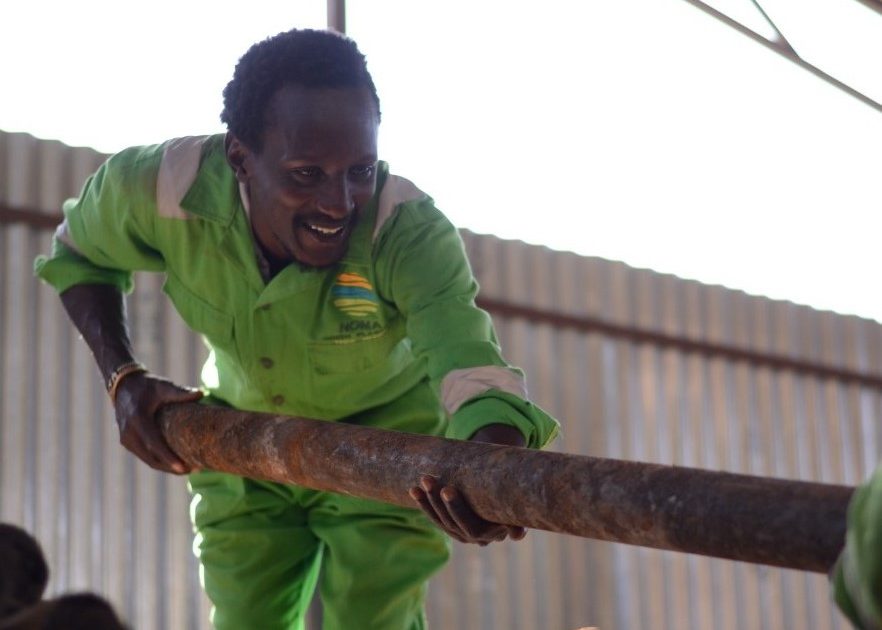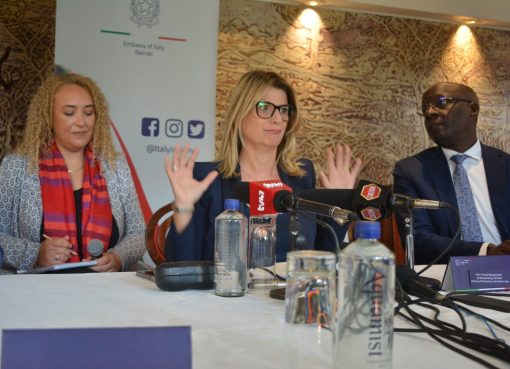In an efforts to reduce pressure on cutting down trees for diverse uses, a youth group in Ruthigiti area in Kiambu County have embarked on recycling plastic waste into eco-friendly fencing poles and outdoor furniture which are rot and termite proof.
With the noble venture founded in 2019, Mugo Macharia who is the pioneer of Noma Green Plastics group shared with KNA that the source of inspiration for him and two other friends emanated from passion to conserve trees with their wide benefits while also bridging the gap by countering the consumerism nature in the society.

“When we kicked off the recycling project, we could only afford a second-hand machine for grinding and melting the plastic waste though our work was much limited then due to the nature of the machine and inadequate funds to make production more consistent,” Mugo said.
Through resource mobilization from a well-wisher, Mugo explained that they were able to afterwards purchase another machine which made production easier.
“Our main goal which we have actualized is in making eco-friendly fencing poles and outdoor furniture including benches and tables,” Mugo added.
From the recycled plastic at Noma, the poles are in different dimensions; three-inch round, four-inch round and square, and planks.
The planks are used for making outdoor furniture while three inch and four-inch poles are used for fencing and Mugo says that they were looking forward into expanding the recycling into more materials used for construction.
He noted that they were keen on removing plastic waste from the environment which would have ended up in landfills, water systems and the natural environment with their fencing poles being a great substitute for wood thus saving trees from being cut down as every post they sell could have been a wooden pole from a tree.
The National Environment Management Authority (NEMA) has been advocating for youth participation in environmental protection through conservation projects at the grassroots level.
With NEMAs 80 per cent target set, only 45 per cent of the waste generated in the city is recycled, reused or transformed into a form that can yield an economic or ecological benefit.
Mugo, reiterated that through their Noma Green Plastics, their venture has been a source of employment and income to youths around the area.
“At the moment, we have six youths from Kamangu and Ruthigiti area in Kiambu County who are on full time basis while we also contract about ten youths both men and women on temporary basis when the work is overwhelming,” said Mugo.
Recycling has been one of the commended ways of waste treatment that enables the country to achieve a reduction of waste that is normally directed to landfills and other disposal facilities.
David Ndung’u in charge of production at Noma Green plastic has called upon youth to embrace the aspect of recycling waste to reduce severe effects in the future.
“I joined this recycling group to champion for better environment conservation and saving trees because if they are adversely cut down, we shall continue experiencing more effects of climate change and I want to urge my fellow youths to be the source of positive change wherever they live by saving the environment,” said Ndung’u.
The country aims to transition the waste sector in every county away from low collection rates, illegal dumping and uncontrolled dumpsites to affordable waste collection, recycling and composting, and secure final disposal in engineered landfills for the remaining fraction of the waste stream.
By Jackline Kidaha





